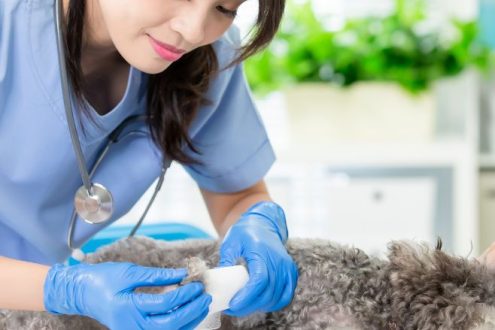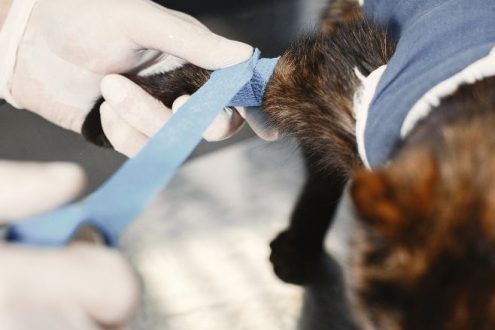Orthopedic Surgery
Orthopedic Surgery for Pets: When Your Furry Friend Needs Extra Care
Orthopedic surgery for pets can be a stressful and overwhelming experience for both you and your furry friend. However, in some cases, orthopedic surgery is necessary to improve your pet’s quality of life and overall health. In this article, we’ll discuss what orthopedic surgery is, when it’s necessary, and what to expect before, during, and after the procedure.
Trusted Team
Peace of mind
We love pets
Convenience
What Is Orthopedic Surgery for Pets?
Orthopedic surgery for pets is a type of surgery that is performed on the bones, joints, and muscles of your pet’s body. This type of surgery is typically done to correct structural problems, repair injuries, or alleviate chronic pain.
When Is Orthopedic Surgery Necessary?
Orthopedic surgery may be necessary for a variety of reasons, including:
Trauma: If your pet has suffered a serious injury, such as a broken bone or torn ligament, orthopedic surgery may be necessary to repair the damage.
Congenital conditions: Some pets are born with conditions that affect their bone structure, such as hip dysplasia or patellar luxation. Orthopedic surgery may be necessary to correct these conditions and improve your pet’s mobility and comfort.
Chronic conditions: Chronic conditions, such as arthritis or degenerative joint disease, can cause significant pain and discomfort for your pet. Orthopedic surgery may be necessary to alleviate these symptoms and improve your pet’s quality of life.
What Should You Expect Before the Procedure?
Before your pet’s orthopedic surgery, your veterinarian will conduct a thorough physical exam and may perform additional tests, such as x-rays or blood work. This will help determine the extent of your pet’s condition and ensure that they are healthy enough for surgery.
Your veterinarian may also give you specific instructions to follow before the procedure, such as withholding food or water for a certain period of time.


What Should You Expect During the Procedure?
During the procedure, your pet will be placed under general anesthesia to ensure that they are comfortable and still during the surgery. Your veterinarian will make an incision in the affected area and perform the necessary repairs or corrections.
After the procedure is complete, your pet will be closely monitored as they wake up from the anesthesia.
What Should You Expect After the Procedure?
After the procedure, your pet will likely need to stay at the veterinary hospital for a period of time to ensure that they are recovering well. Your veterinarian may prescribe pain medication and/or antibiotics to help manage any discomfort and prevent infection.
Your veterinarian will also give you specific instructions for caring for your pet at home, such as limiting their activity and monitoring their incision site for any signs of infection or complications.

